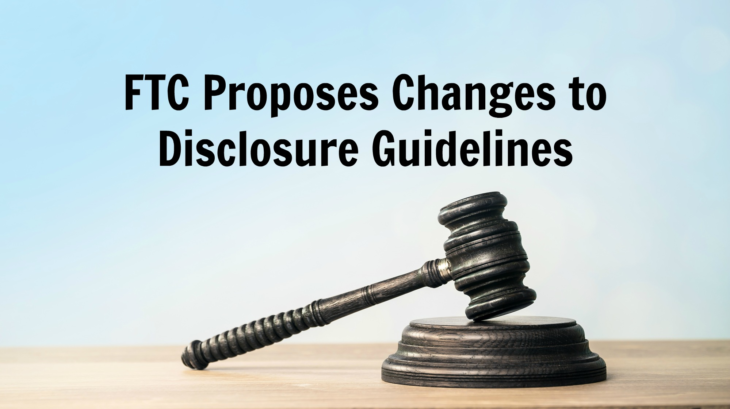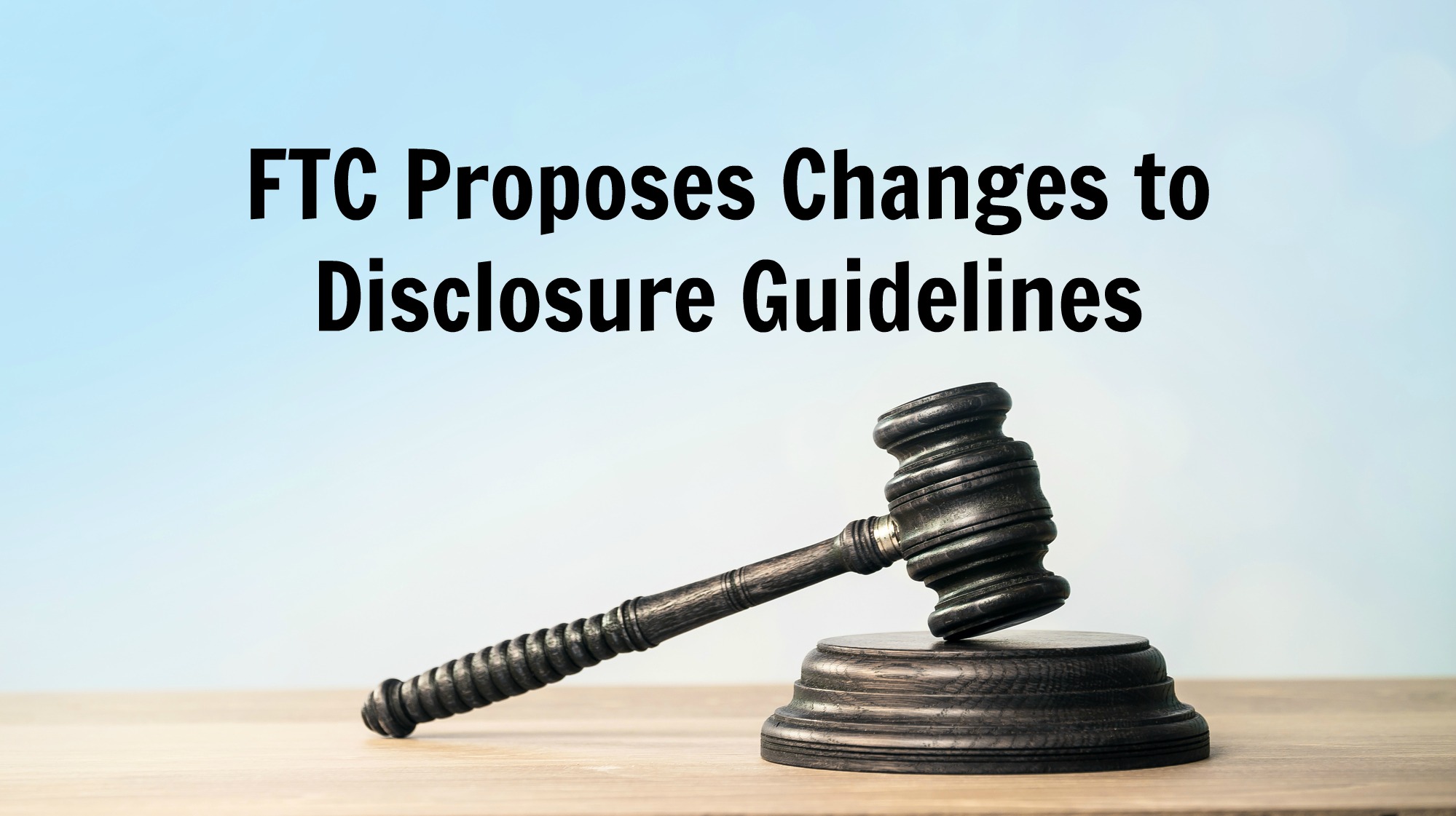
FTC Proposes Changes to Disclosure Guidelines

The FTC came out with two documents this week that are significant for affiliate marketers, influencers, and merchants. For all of the background information on where the FTC currently stands, check out my post Affiliates Take Note: New FTC Disclosure Guidelines. It includes 7 years worth of statements, settlements, and updates from the FTC in one place.
Right now the FTC is talking a lot about “influencers” and doesn’t distinguish how they are paid. In affiliate marketing, we might want to know if they are being paid when people click on their links or use their exclusive coupon codes or whether they are flat fees (or maybe a combination of both). But for purposes of this discussion, the FTC does not seem to care about payment details and is more concerned in general about the practice of influencer marketing and how brands are using the influencers to get away with advertising that doesn’t look like advertising (they actually call it “launder advertising” and “illegal payola” which makes it sound even more sketchy!)
Statement of Commissioner Rohit Chopra
Let’s start with the Statement released on February 12, 2020. Regarding the Endorsement Guides Review.
The Commissioner cites that influencer marketing will reach $15 billion for 2022 and that it is getting harder for families and small businesses looking for truthful information. It also believes the tech companies are part of the problem and not the solution right now.
In an interesting statement and a change from the website that was fined last week, the Commissioner says that they want to “focus on advertisers, not small influencers.” Specifically “When individual influencers are able to post about their interests to earn extra money on the side, this is not a cause for major concern.” Chopra seems most frustrated that past enforcement (like the Lord & Taylor settlement) isn’t “deterring misconduct in the marketplace” and wants to be able to pursue larger sanctions against companies in violation.
Chopra wants to review the Endorsement Guides and would like the FTC to:
- Develop specific requirements for any technology platform that facilitates or in any way profits from influencer marketing.
- Turn the “guides” into codified rules that will allow for both civil penalties and damages.
- Give specific contractual requirements that all influencers will have to follow in their campaigns.
So after a long time of wondering if the FTC was going to actually take the disclosure guidelines seriously, I think we have our answer. There’s just too much money being made not to.
FTC Looking for Public Comment
As mentioned in Chopra’s statement, the Commission wants to review the current Endorsement Guidelines and is now seeking public comment: FTC Seeks Public Comment on Its Endorsement Guidelines
This is an opportunity for our industry to officially tell the FTC what we like and don’t like about the Guidelines. What is possible for us to do and what isn’t.
A proposed Federal Register Notice gives a lot more detail about what the FTC is going to be considering. The questions are just a starting point and not a limitation on comments. Further, the FTC would like commenters to submit any available evidence and data that they have, including consumer complaints. You can read all of the proposed questions yourself but these are the ones that stuck out to me with my comments in the parentheticals:
- Do the Endorsement Guides describe any practices that are not deceptive or unfair? (maybe for us, we think we should be able to use the word “affiliate”?)
- What is the degree of compliance with the Endorsement Guides? Do covered businesses and others following the Guides’ suggestions self regulate…such as through trade associations? (We know that many, many affiliates do not comply. If most are not complying, what incentive is there for the ones that are?)
- What burdens or costs have the Guides imposed on small businesses in particular (OPMs, I think this could include you)
- There are a few questions regarding the reviews of free and discounted products as well as incentivized consumer reviews.
- This is a big and important one so I am just going to copy it all in!! “Some endorsers (including the authors of some product reviews) include affiliate links that can be used to purchase the products they are endorsing. Should the Guides address such links, and if so, how? To what extent do consumers expect that these endorsers are compensated for purchases through those links? If so, what compensation arrangements do consumers ordinarily expect? To what extent would knowing of such compensation affect the weight or credibility given to those endorsements? Is there a distinction in terms of either consumer expectations or the weight ascribed to an endorsement between affiliate links to a product’s marketer and affiliate links to one or more retailers? If so, how, why, and how should that be addressed? “
- What disclosures, if any, do advertisers or the operators of review websites or review platforms need to make about the creation, collection, processing, or publication of reviews or ratings in order to prevent those reviews or ratings from being deceptive or unfair? (This one seems to come out of that settlement from last week that I mentioned above. Does it mean they ARE focused still on the publishers when it comes to affiliate links versus the advertisers when it is social media influencer marketing?)
This is just a sample of the included questions. The FTC clearly knows that their Guidelines are not really useful, not being followed, and don’t have as much teeth as they want them to. Now is our opportunity to help set the course going forward. The Federal Register notice gives more information on how to submit your comments (including online or paper). While the date isn’t set yet, it will be around April 13, 2020.
How do you think the Guidelines should be changed? Should they be enforced more or less?